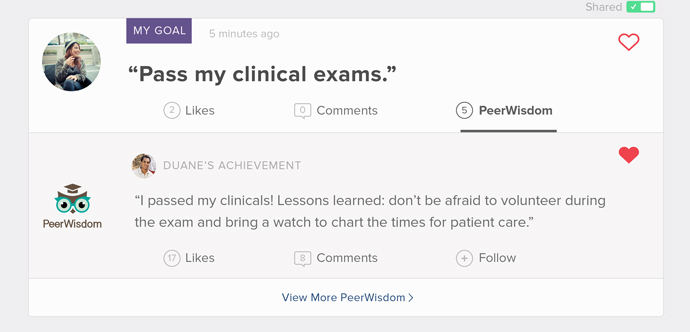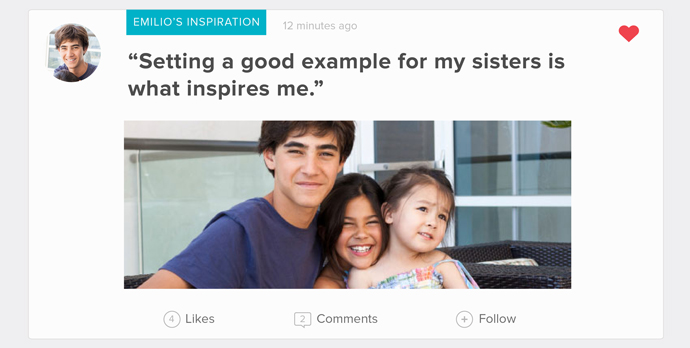“Everyone says dropouts are the biggest problem in higher-ed. But academics isn’t the only thing in higher education,” says Karan Goel, founder and CEO of GetSet.
The startup, publicly launched this August, offers a peer mentorship tool that helps students create a support network for nearly every facet of the college experience--whether it be academics or personal.
Getting college students to stay in school is the next goal for Goel, whose previous venture, a test prep company called PrepMe, was acquired by Ascend Learning and Naviance. His Chicago, IL-based startup has just closed $2.5 million in a seed round from The Social+Capital Partnership, Chicago Ventures, and angels including Dick Kiphart, Howard Tullman, and the founders of Braintree, Fieldglass and Flutter.

In October 2012, Goel reunited with Eric Bjerstedt (a colleague from PrepMe) to research how--and why--students decided to drop out. They dove into the existing academic literature and enlisted a couple leading experts in the field to join the team as “Scientific Advisers.” (One of which is Robert Feldman, a Deputy Chancellor and psychology professor at University of Massachusetts Amherst whose work focuses on college student success.)
Public universities in states like Florida spend billions of dollars on academic intervention and remedial education. Some of these services are needed, says Goel. “But the more we talked to academics and students, we realized the majority of people don’t drop out because of academic reasons,” Goel shares.
According to him, only 12% to 20% of students drop out due to academics. An equally--if not more--important factor is the sense of belonging in the campus community. But while colleges typically provide counseling and advising services, many students don’t take full advantage of them. Of the ones who do, says Goel, “many tend to be straight-A students or on the opposite extreme.” Often, “a lot of first generation college students don’t believe they can find support because no one they knew went to college.”
There’s also the stigma associated with asking for help, especially from an older person with whom students may find it difficult to relate.
GetSet, available via mobile web (and soon to launch as an Android and iOS app), currently offers two main features. The first is designed to give incoming students a head start in building a peer support network. GetSet will ask students basic questions about their background and motivations for going to college. Based on their responses, the app will recommend connecting with users at the same school who gave similar answers.

GetSet also functions as a instant Q&A network where students can type in a question and see tips from--and connect with--others who have dealt with the same issue. (Students do not have to publicly post the question; the “Peer Wisdom” natural language processing technology that powers the app can parse questions and suggest answers in real time.)
Students who publicly share tips and advice are rewarded with “karma points,” which denotes how helpful they are in their community. While GetSet can be loosely defined as a social networking tool, Goel intends the app to function more as a conversation starter that leads to in-person connections.
Goel credits GetSet’s efforts to bridge peer support, social belonging, persistence and academic success to the theory of “mindset change,” an idea popularized through the works of Carol Dweck and recently featured in Khan Academy’s “#YouCanLearnAnything” initiative.
GetSet is currently deployed in six colleges, including Arizona State University and American Career College. Schools pay an annual license to make the app available to its students. The startup is also a semi-finalist for the Robin Hood Foundation’s $5 Million College Success prize.



